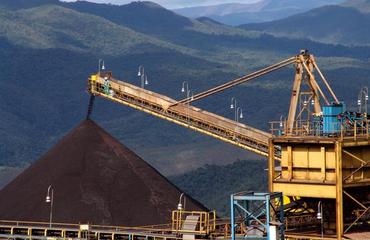São Paulo – Exports from Brazil to the Arab countries from January to November this year grossed more than they had in all of 2015, as per a survey taken by the Arab Brazilian Chamber of Commerce based on data from the Brazilian Ministry of Industry, Foreign Trade and Services. In 2015, Arab countries had imported USD 12.1 billion worth of goods from Brazil; in the first eleven months of 2017, revenue from foreign sales came out to USD 12.5 billion.
Compared with January to November 2016, export revenue was up 21.6%. Shipped volume was up 19.3% to 38.4 million tons. The average price per ton went from USD 31,900 through November 2016 to USD 32,500 through November this year. That is why revenue widened more than volume did.
“We will see a 15% to 20% increase in exports by the end of the year, according to our own projections,” said Arab Chamber CEO Michel Alaby. According to him, the outlook for early 2018 is positive, even though a host of factors could complicate the scenario – such as uncertainty regarding reforms and wage raises for federal civil servants. “Although they might tamper with the exchange rate and cause the real to lose value, what we hope is that the country will grow,” he said.
Top-selling products from Brazil to Arab countries included sugar, at 34.2% of total sales; meats, at 27.2%; ores, at 8.5%; and cereals at 6%. Sugar exports saw a 36.2% hike.
Alaby pointed out that ore sales soared by 69.3%. “This is an important item, an indicator of economic growth in that region. The more ore is bought, the more industry grows, leading to new jobs and to consumption by the population,” he explained.
Saudi Arabia topped the list of Arab importers of Brazilian goods, with USD 2.485 billion in goods purchased through November, up 8.3% year-on-year. The UAE bought USD 2.3 billion, up 15.5%, and Egypt’s imports amounted to USD 2.232 billion, up 37.7%.
Iraq stood out with an 80% increase in imports, to USD 727.4 million.
Imports
Conversely, Brazil imported USD 5.853 billion worth of goods from Arab countries, up 18.4% from January to November 2016. Imports from Algeria and Saudi Arabia – Brazil’s biggest Arab suppliers so far this year – came out to USD 2.079 billion and 1.821 billion, respectively.
The bulk of imports were made up of fuels, at USD 3.658 billion, and fertilizers at USD 1.570 billion. These two items accounted for a combined 89.4% of total imports from Arab countries to Brazil.
Brazil posted a USD 6.7 billion surplus in trade with Arab countries.
*Translated by Gabriel Pomerancblum




